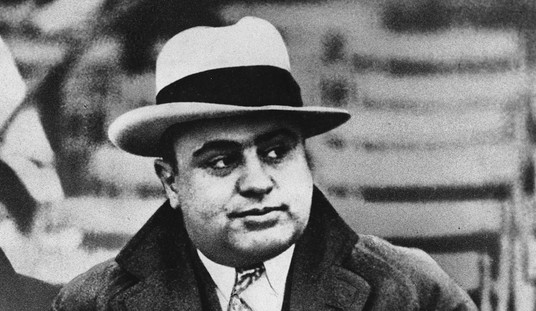Let’s recall that it was President George H. W. Bush who first talked about a “new world order,” and in just about the same context — a foreign war in Southwest Asia that had failing popularity. Obama doesn’t go nearly as far as Bush did in exhorting support for international organizations in his speech today at West Point, but he goes far enough to catch the attention of the Washington Post:
President Obama on Saturday pledged to shape a new “international order” as part of a national security strategy that emphasizes his belief in global institutions and America’s role in promoting democratic values around the world.
Speaking to the graduating class at the U.S. Military Academy at West Point — the ninth wartime commencement in a row, he said — the commander in chief who is leading two foreign wars expressed his faith in cooperation and partnerships to confront the economic, military and environmental challenges of the future.
“The international order we seek is one that can resolve the challenges of our times,'” he said in prepared remarks. “Countering violent extremism and insurgency; stopping the spread of nuclear weapons and securing nuclear materials; combating a changing climate and sustaining global growth; helping countries feed themselves and care for their sick; preventing conflict and healing its wounds.”
The administration is set to officially release the president’s first national security strategy next week, and Obama’s preview on Saturday suggests it will be far different than the first one offered by his predecessor in 2002. In that prior document, President George W. Bush formally called for a policy of preemptive war and a “distinctly American internationalism.”
Obama has spoken frequently about shaping new alliances with the world, and of attempts to repair the U.S. image abroad after nearly a decade in which Bush’s approach was viewed with suspicion in many quarters. In his commencement speech to the graduates, the president emphasized his beliefs in those alliances.
“Yes, we are clear-eyed about the shortfalls of our international system. But America has not succeeded by stepping outside the currents of international cooperation,” he said. “We have succeeded by steering those currents in the direction of liberty and justice — so nations thrive by meeting their responsibilities, and face consequences when they don’t.”
Of course, Bush managed to keep terrorists from staging attack attempts in the US from the 2002 shoe-bombing attempt until he left office, a six-year run, with that “distinctly American internationalism” that Obama has spent the last 16 months changing. In the context of national security, the Obama administration has thus far had lesser success. Dennis Blair got the boot as the national intel chief just this week thanks in large part to missing three terrorist attacks in the last six months, and the wooing of Russia and abandonment of China has done nothing to move the needle on Iran, one of the most critical national-security issues we face.
No one believes that Obama will continue support for pre-emptive war, but even if he gave rhetorical support for it, Obama has shown little enthusiasm for such forward strategies — except, it should be noted, in Afghanistan. In every other instance, Obama has ceded American leadership and range of action to the notion of the supremacy of international agencies like the UN. It’s not the same as the NWO conspiracy theories floating around the Internet, but it falls squarely in the hard-Left realm of the kind of “global test” that John Kerry demanded during his presidential campaign in 2004.
Interestingly, CNN waits until its very last paragraph to mention the “international order” reference in the speech:
Obama said the world’s burdens cannot just be America’s and alliances that has served the United States well must be maintained, strengthened and widened.
“The international order we seek is one that can resolve the challenges of our times – countering violent extremism and insurgency; stopping the spread of nuclear weapons and securing nuclear materials; combating a changing climate and sustaining global growth; helping countries feed themselves and care for their sick; preventing conflict and healing its wounds.”
If he finds one that could do any of the above, it would be the first. Bush 41’s idea of a “new world order” preceded the explosion of Islamist terrorism against the US, which the UN, the IAEA, and other multinationals proved inadequate or completely anachronistic to confront. The lesson from the past century is that these multinational organizations exist to maintain inertia and to hobble the democracies while giving tyrants a boost through moral relativism. In any case, telling West Point cadets that they’re fighting to establish an “international order” hardly seems like an inspirational moment.








Join the conversation as a VIP Member